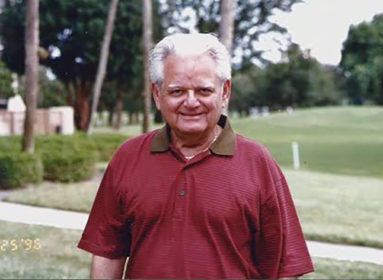
By Stacey Dresner
WEST HARTFORD — In the past few years, The Emanuel Synagogue in West Hartford has been working to become more environmentally conscious.
The congregation has even received a “Seal of Sustainability” from Hazon: The Jewish Lab for Sustainability for implementing various recycling and energy saving measures.
That green streak continues with a new addition to the synagogue building – a solar panel system on the rooftop that will supply 90 percent of the Emanuel’s annual electricity consumption.
A grand opening ceremony featuring local dignitaries, Emanuel clergy, and a reception will be held on Thursday, July 29 at 5 p.m. on the synagogue’s campus to unveil the solar project.
“This project enables us to devote more resources to important synagogue missions, including fulfilling our obligation to preserve and improve the world around us by reducing the purchase of electricity produced by fossil-fueled power plants,” says Emanuel President Ken Simon.
The Emanuel partnered with Verogy, a Hartford-based solar developer that provides renewable energy solutions and services.
“The electricity usage and available roof space makes The Emanuel Synagogue an ideal candidate for this type of project,” says Bryan Fitzgerald, director of development at Verogy. “Now is the perfect time for businesses and non-profits to tackle the uncertainty around electricity rates by going green.”
The solar panels will produce 198,000 kWh annually, the equivalent of powering 15 average homes annually with clean energy. Additionally, the solar project will result in the avoidance of fossil-fueled plant emissions of 140 metric tons of carbon dioxide every year. The reduction of the synagogue’s carbon emissions is equivalent to the annual emission from 30 passenger vehicles.
The idea to go solar began a couple of years ago.
“Various members of our Board have promoted green energy and other environmentally friendly projects,” says Mel Simon, Ken’s brother and Emanuel’s past president.
One of those projects was working with Hazon, a nonprofit Jewish environmental organization based in New York City, on a one-year project to become more environmentally-conscious in its operations.
“We used to use Styrofoam cups for coffee. We don’t do that anymore. We were using disposable plates and other materials to serve food. We don’t do that anymore — we invested in reusable materials. We recycle now, whereas we previously were less conscious of our recycling and waste. We changed all of our lighting in the building to be energy efficient and longer lasting. They helped us better understand ways that we could be consistent with those goals,” Mel Simon explains.
Around that time, the Emanuel Board began exploring the possibility of using solar power.
Two years ago when Mel Simon became president, he says it was time to make the solar dream a reality.
“I kind of pushed the prospect of getting this done before my presidency was concluded, because I thought it was potentially economically advantageous to us, and it turns out to be just that, in addition to being an environmentally good thing. The amount of carbon that our building will save as a result of using solar power vs. other types of electric generation is like 100 tons a year of carbon. It’s pretty remarkable,” he says.
The Emanuel put the project out to bid and ultimately chose to go with Verogy.
“They recently completed a solar project on King Philip Middle School [in West Hartford], so they had a lot of experience working within the town and on large projects,” said Mel Simon.
The project includes a 20-year Power Purchase Agreement (PPA), under which the synagogue will purchase its power at a lower rate than what its currently pays a utility. There is no up front out-of-pocket expense with a PPA so, according to Verogy officials, all the savings generated from the discounted energy will be a “direct financial benefit for the synagogue.”
“They offered us a remarkable deal in terms of rates,” says Mel Simon, explaining the Power Purchase Agreement. “We don’t own the system, they do. That is the way we structured it through an arrangement where they essentially get a license on our building and we buy the electricity from them at a guaranteed rate over the next 20 years, which is considerably lower than the rate we’re paying now. We don’t have to do anything, other than we signed an agreement with them and let them use the roof of the building.
“We get a guaranteed source of electricity, which is green and cheap, and they get significant tax benefits and other incentives from the state, which is promoting solar power. They build it, they maintain it, they fix it. They are responsible to keep it running, and we essentially are just providing the space.”
According to Mel Simon, the synagogue’s new electric rate using the solar system will save the Emanuel about $20,000, annually, based on current electricity rates.
“Over the next 20 years, with rates expected to increase, our savings will only increase.”
While the financial savings were incentive enough, Mel Simon says that another incentive was its effect on the environment.
“Tikkun olam is a key value of Judaism and the Board embraced the proposition that solar power is, because of the diminishment of carbon emissions, a key way to repair the world. It keeps our air cleaner, and it also reduces our dependence on fossil fuels that ultimately are not good for our environment,” he says.
The Emanuel is now the first synagogue in the Greater Hartford area to become solar powered.
And that, says Emanuel spiritual leader Rabbi David Small, is a mitzvah.
“The realization of this project supports the Emanuel community in helping to fulfill the mitzvah of repairing and preserving the natural world with which we have been blessed.”
Main Photo: The Emanuel Synagogue is the first synagogue in the Greater Hartford area to install solar panels.







 Southern New England Jewish Ledger
Southern New England Jewish Ledger














